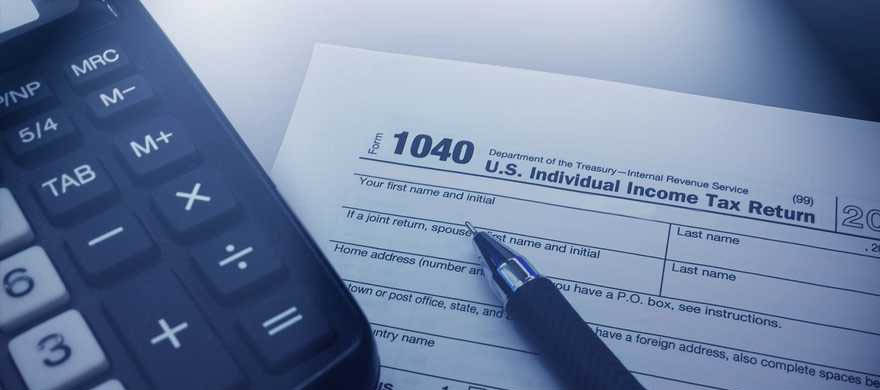
Better tax planning can minimize tax liability and save money. By starting the year off right, small business owners can save a great amount of money, time, and energy with three easy steps.
1. Make Sure You Have the Appropriate Business Structure
All businesses must file an annual tax return based on the business structure. Assessing which business structure works best for you can minimize your tax liability.
- Sole Proprietorships are businesses owned and managed by one individual doing business in his or her own name or as a fictitious trade name. A sole proprietorship is taxed as personal income instead of business income. While these are the easiest business structures to form, they may also leave you the most financially vulnerable. Any business income is combined with personal income to determine the appropriate tax rate.
- Partnerships are a business entity with two or more individuals as co-owners. In a partnership, both parties are legally responsible for all profits and losses, which are then reflected on each individual’s personal tax return.
- Limited Liability Companies (LLC) offer limited personal liability, meaning it separates an owner’s personal assets from the company’s assets. Owners are not shareholders or partners but are still subject to self-employment taxes. The owner of an LLC is not personally liable for company debt in most cases. An LLC owned by one individual is taxed as a sole proprietorship. An LLC with two or more members is taxed as a partnership. An LLC can choose to be classified as a corporation or an S corporation.
- A corporations, or “C” Corporation, is considered a tax entity separate from the owner. It protects an owner’s personal assets. Setting up a corporation can be more complicated; however, it is a popular choice because of special deductions. Income from a corporation is taxed at a corporate tax rate.
- An “S” Corporation offers the same protections as a corporation, with limited liability for shareholders. “S” Corporations must have fewer than 100 shareholders and only one class of stock. An “S” Corporation pays taxes on capital gains and passive income.
2. Use Digital Tools To Better Manage Your Records
Go through your filing cabinet or desk drawer where you may be stuffing away your receipts. If you insist on keeping paper receipts, create a filing system that reflects the IRS Business Expense Categories.
A few important records the IRS recommends small businesses maintain include sales slips, invoices, receipts, credit card charge slips, canceled checks, insurance records, and receipts.
Consider going paperless by scanning receipts or using a receipt tracker. Scanning receipts and important documents has become easier than ever with Optical character recognition (OCR) software that turns your scanned documents into digital files, allowing you to search and tag for easier document management. Many excellent scanner software options and convenient mobile apps are available. Do your research to determine the one that best meets your needs.
3. Get Professional Help if Needed
Small business owners are notorious for wearing multiple hats and trying to do everything themselves. You need to be honest with yourself about your level of organization and capabilities. Your small business accounting and tax planning are a critical element to the success of your small business.
Determine if hiring an accountant or licensed tax preparer is in your best interest. Hiring a knowledgeable professional can be an expense that will save you money in the long term. An experienced professional can guide you on how to set up an easy-to-maintain system and guide you through tax deadlines and a successful tax planning strategy.
Types of Tax Professionals
According to the IRS, there are three types of professionals who may represent you on audits, payment, and collection issues and appeals.
- Enrolled Agents (EA): An enrolled agent is a person who has earned the privilege of representing taxpayers before the Internal Revenue Service by either passing a three-part comprehensive IRS test covering individual or business tax returns, or through experience as a former IRS employee.
- Certified Public Accountants: Licensed by state boards of accountancy, the District of Columbia, and U.S. territories, certified public accountants have passed the Uniform CPA Examination. They have completed a study in accounting at a college or university, and also met experience and good character requirements established by their respective boards of accountancy. In addition, CPAs must comply with ethical requirements and complete specified levels of continuing education in order to maintain an active CPA license. CPAs may offer a range of services; some CPAs specialize in tax preparation and planning.
- Attorneys: Licensed by state courts, the District of Columbia or their designees (such as the state bar), attorneys generally have earned a degree in law and passed a bar exam. Attorneys have ongoing continuing education and professional character standards. Attorneys may offer a range of services; some attorneys specialize in tax preparation and planning.
Talk to your business peers to identify a potential financial preparer. Make a list of your needs and schedule an initial chat, similar to an interview, to determine if the person can meet your needs. Ask about licensure, rates, experience, professional affiliations, and whether the person handles audits. Use your best judgment on the person’s character—is the person honest and easy to communicate with? The personal relationship is important to establishing a strong professional relationship.
